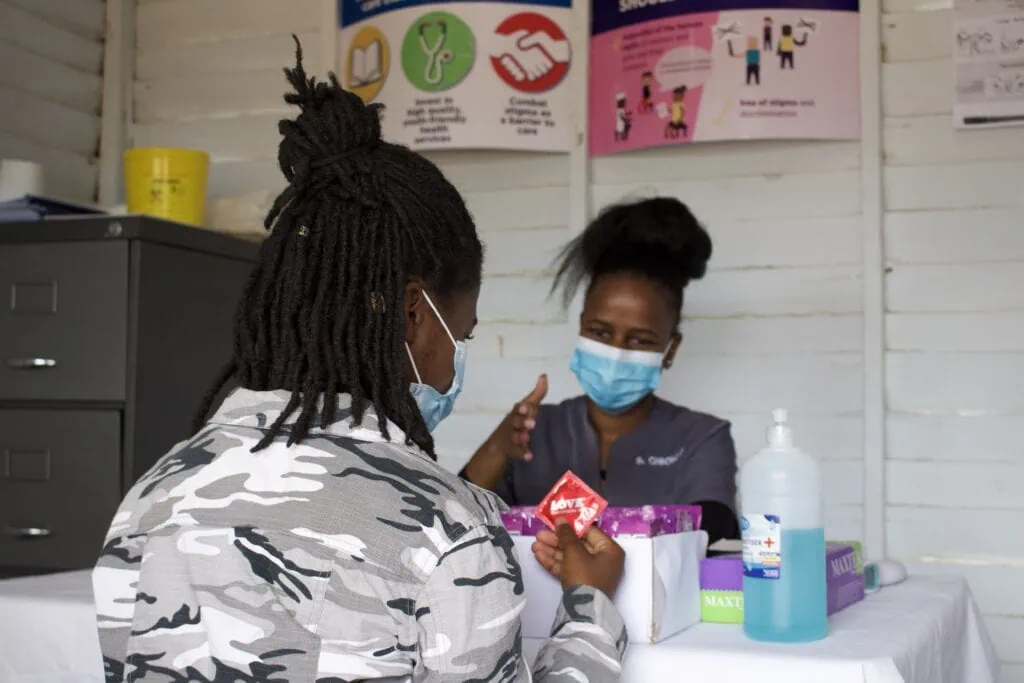March 8 is International Women's Day. An important day of remembrance to remind us what we are already doing right, and an annual wake-up call about what still needs to be done.
By the time you finish reading this article, at least two women worldwide will have died as a result of pregnancy. Every two minutes, in fact, women have to die in this way, according to the United Nations (UN) World Population Report published in 2022. Whereby more than two-thirds of these fatal cases occur south of the Sahara. Between 2000 and 2015, the death rate had once declined, but in the years since, those numbers have gone up again, according to the report. Annually, 121 million unintended pregnancies were recorded between 2015 and 2019, the report said, based on new data from the Guttmacher Institute from 150 countries during those years. That means the pandemic years weren't even part of the study, but we know from all of our program countries in Southern Africa and Central America that the situation worsened further during the pandemic. In South Africa alone, for example, the number of Pregnancies among 10- to 14-year-old girls between 2017 and 2021 increased by 48 %. Between January and August 2022 alone, 15 women were victims of sexual violence every day in Nicaragua, and over 80 % of them were minors.
Preventable deaths
Major causes of fatal cases include severe bleeding and complications during delivery and unsafe abortions, which are performed in nearly 30 % of unintended pregnancies each year. The devastating part is that these are all cases that could be prevented. According to the World Population Report 2022, worldwide. over 270 million women do not have access to contraceptives. But access and information alone are far from sufficient to protect girls and women. This is where terre des hommes switzerland and its partner organizations in southern Africa come in and work to ensure access to sexuality education and information for girls and young women. In addition to correct and scientifically based sexuality education, it is also a matter of creating safe places where girls can access contraceptives without stigmatization.
Access to contraceptives not sufficient
Accordingly, it also needs here Efforts on several levels. Families, communities and especially men must be involved in the awareness-raising work. This work in the so-called ecological model, which characterizes terre des hommes switzerland's commitment to health, is crucial. Because not only young women must be able to claim their right to contraception, to access to medicine and, above all, to their bodies. Their Environment, i.e., their partners, families, hospitals, etc. must preserve and protect these rights. In this way, as terre des hommes switzerland's years of experience in the field have shown, gaps in health care can be closed and elementary human rights of young women and girls are safeguarded.
Growing political pressure on human rights work
It is also alarming that the health rights of girls and young women globally are under a growing repressive political context have to suffer. In Nicaragua, for example, many women's rights organizations have been banned in recent years. In Zimbabwe and other countries in southern Africa, we are witnessing the growing influence of arch-conservative religious groups that are fighting any work in the field of education. Already today, we are working in Zimbabwe to Strengthen health rights of young people at parliamentary level. (See also: Health and sexual rights | terre des hommes switzerland). The insights terre des hommes switzerland makes in Zimbabwe can also be used in the future in the work of partner organizations in other project countries. Here it will be important in the future to actively influence such political processes in favor of girls and young women.


